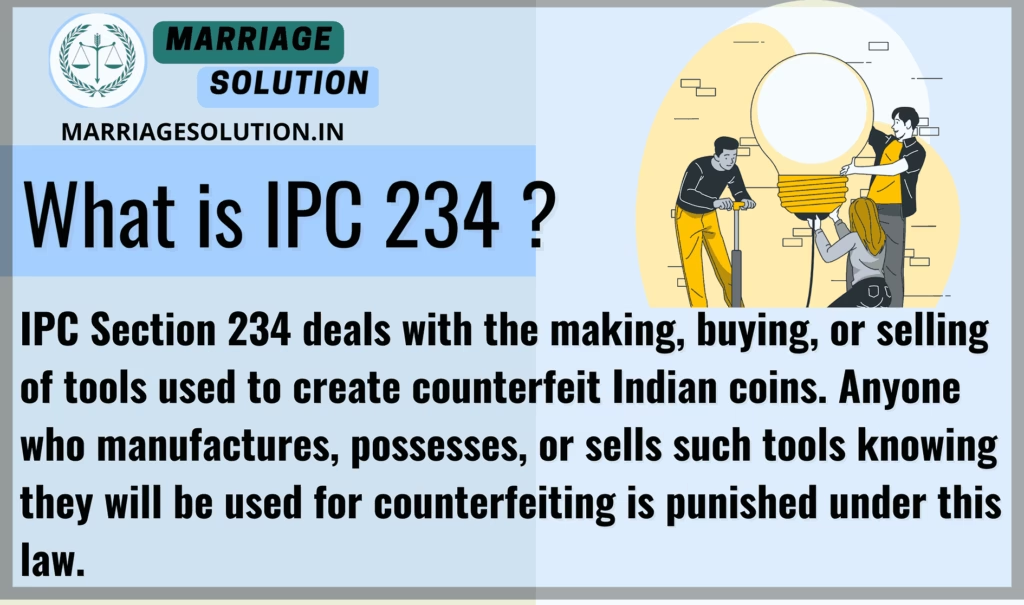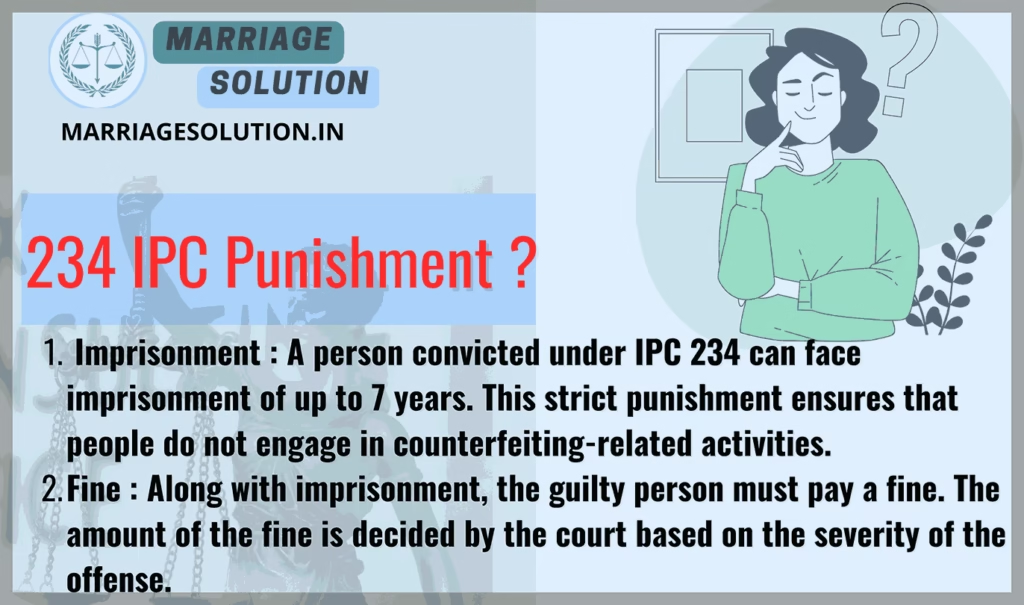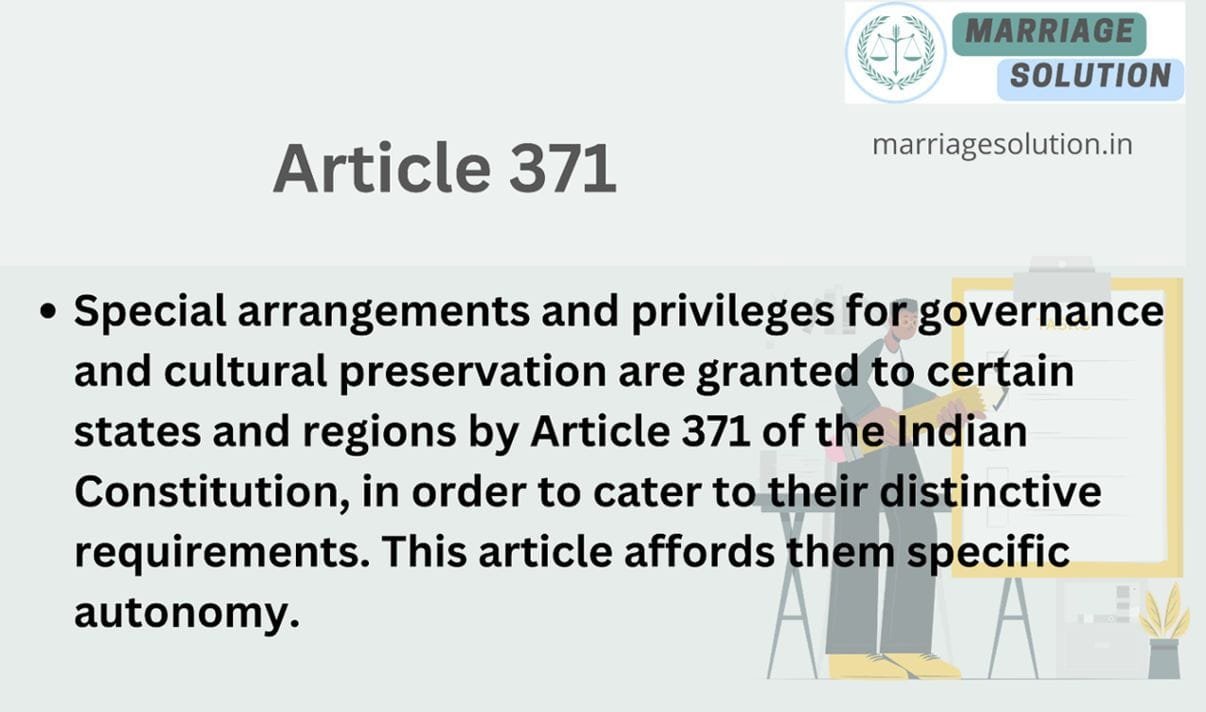Introduction of IPC 234
IPC 234 deals with the making, selling, or possessing of tools or equipment that can be used for counterfeiting Indian coins. Counterfeiting poses a major threat to a country’s financial system, and this law ensures strict punishment for those involved in supporting such activities. Even if a person is not directly making fake coins but is helping by creating or selling the tools used for counterfeiting, they can be punished under IPC 234.
- Introduction of IPC 234
- What is IPC Section 234 ?
- Section 234 IPC in Simple Points
- Section 234 IPC Overview
- 10 Key Points of IPC 234
- 1. Purpose of IPC 234: Preventing Counterfeiting Tools
- 2. Covers Making, Possessing, and Selling of Counterfeiting Instruments
- 3. Strict Punishment to Deter Crime
- 4. Only Applies to Indian Coins
- 5. Knowledge of Crime is Necessary for Conviction
- 6. Non-Bailable Offense: No Easy Bail for the Accused
- 7. Cognizable Offense: Police Can Arrest Without a Warrant
- 8. Sessions Court Handles the Trial
- 9. Link to Economic Crimes and National Security
- 10. Helps in Strengthening Financial Security
- Example 1: Illegal Workshop for Counterfeiting Coins
- Example 2: Possession of Counterfeiting Equipment
- Section 234 IPC case laws
- 234 IPC Punishment
- 234 IPC Bailable or non bailable
- Section 234 IPC in short information
- IPC Section 234 FAQs
- If you need support with court proceedings or any other legal matters, don’t hesitate to reach out for assistance.
What is IPC Section 234 ?
IPC Section 234 deals with the making, buying, or selling of tools used to create counterfeit Indian coins. Anyone who manufactures, possesses, or sells such tools knowing they will be used for counterfeiting is punished under this law.

Section 234 IPC in Simple Points
1. Crime of Manufacturing Counterfeiting Tools
If a person creates tools, machines, or materials used to make fake Indian coins, they are guilty under IPC 234. The law ensures that counterfeiters do not have access to instruments that can be used to deceive people.
2. Selling or Distributing Counterfeiting Instruments
Selling, supplying, or distributing tools used for making fake coins is also an offense. Even if the person did not personally use the tools, they will be punished for enabling counterfeit activities.
3. Possession of Counterfeiting Instruments
If a person is found in possession of tools used for making fake coins, it is assumed that they are involved in counterfeiting. The court may require them to prove their innocence.
4. Severe Punishment to Prevent Fake Currency
The law prescribes up to 7 years of imprisonment and a fine. This ensures that those who support counterfeit activities face strict consequences.
5. Crime is Non-Bailable and Cognizable
Since counterfeiting affects the economy, IPC 234 is a non-bailable and cognizable offense. Police can arrest the accused without prior permission, and getting bail is difficult.
Section 234 IPC Overview
According to IPC 234, anyone who makes, buys, sells, or possesses tools, dies, molds, or instruments meant for counterfeiting Indian coins shall face legal punishment. This law ensures that counterfeiting activities are stopped at the root by preventing people from creating the necessary tools.
10 Key Points of IPC 234
1. Purpose of IPC 234: Preventing Counterfeiting Tools
The main aim of IPC 234 is to prevent people from making or selling tools that could be used to create fake Indian coins. Counterfeiting affects the financial system, damages public trust in currency, and causes economic loss. By criminalizing the production and sale of such tools, the law ensures that counterfeit money does not spread in the market.
2. Covers Making, Possessing, and Selling of Counterfeiting Instruments
IPC 234 is not limited to just manufacturing counterfeiting tools. If a person possesses, sells, or buys any tools knowing that they will be used for counterfeiting Indian coins, they are also guilty under this law. This ensures that anyone involved in the supply chain of counterfeiting tools is punished.
3. Strict Punishment to Deter Crime
To discourage counterfeit-related crimes, IPC 234 imposes harsh punishment. A person found guilty under this section can face imprisonment of up to 7 years along with a fine. The strict penalty ensures that people think twice before getting involved in counterfeiting activities.
4. Only Applies to Indian Coins
IPC 234 specifically deals with tools used for counterfeiting Indian coins. If a person is involved in counterfeiting foreign currency, they would be punished under different sections of the IPC. This section protects India’s currency system by stopping fake coin production.
5. Knowledge of Crime is Necessary for Conviction
For a person to be punished under IPC 234, they must knowingly be involved in making, selling, or possessing tools for counterfeiting. If someone unknowingly buys or sells such tools without realizing their illegal use, they may not be held guilty. However, if they are aware of the crime and still participate, they will face punishment.
6. Non-Bailable Offense: No Easy Bail for the Accused
IPC 234 is classified as a non-bailable offense, meaning that an accused person cannot automatically get bail from the police. They must approach the court, which will decide whether to grant bail based on the seriousness of the offense.
7. Cognizable Offense: Police Can Arrest Without a Warrant
Since counterfeiting crimes can cause serious economic damage, IPC 234 is a cognizable offense. This means that police officers can arrest a person involved in such activities without needing prior approval from a magistrate. Immediate action helps prevent further counterfeiting crimes.
8. Sessions Court Handles the Trial
Cases under IPC 234 are tried in a Sessions Court because the punishment is severe (up to 7 years in prison). The court examines all evidence, including proof that the person knew they were involved in counterfeiting activities, before passing a judgment.
9. Link to Economic Crimes and National Security
Counterfeiting and related crimes harm a nation’s economy by reducing the value of real currency. They also lead to illegal financial activities, black money circulation, and national security risks. IPC 234 ensures that individuals involved in counterfeiting tools face strict legal action.
10. Helps in Strengthening Financial Security
By criminalizing the sale and production of counterfeiting instruments, IPC 234 prevents fake currency from entering circulation, thus protecting people from fraud. It ensures that the Indian monetary system remains secure and that people have confidence in the use of genuine coins.
Example 1: Illegal Workshop for Counterfeiting Coins
Ramesh owns a workshop where he secretly makes metal dies and molds that can be used to produce fake Indian coins. He sells these tools to a gang that manufactures counterfeit currency. One day, the police raid his workshop and find multiple tools used for counterfeiting. Since Ramesh was knowingly making and selling such instruments, he is charged under IPC 234.
Example 2: Possession of Counterfeiting Equipment
Amit, a shop owner, is found with several machines and molds that can be used for counterfeiting coins. He claims that he did not know they were illegal, but evidence shows he had sold similar tools to criminals before. Since Amit knowingly possessed and sold these instruments, he is arrested under IPC 234 and faces legal consequences.
Section 234 IPC case laws
1. State vs. Ram Kumar (2005)
In this case, the police caught a man with multiple molds and dies used for making counterfeit coins. The court ruled that mere possession of such instruments was enough to prove guilt under IPC 234.
2. Ramesh vs. State of Maharashtra (2010)
The accused was found selling metal stamps used for minting fake coins. He argued that he was unaware of their use. However, the court found that his intention was clear from previous sales of similar instruments.
3. State vs. Anil Sharma (2013)
Anil Sharma had a workshop where he secretly produced tools for coin counterfeiting. The police recovered significant evidence, and the court sentenced him to 5 years in prison under IPC 234.
4. Government of India vs. Vikram Singh (2016)
Vikram was found in possession of a coin-minting machine and fake coins. Even though he had not used the machine yet, the court ruled that mere possession with the intention to counterfeit was a crime under IPC 234.
5. Central Bureau of Investigation vs. Rajesh Gupta (2021)
Rajesh imported counterfeit-making equipment from another country. The authorities intercepted the shipment, and he was arrested before using the tools. The court held that even preparing for counterfeiting is punishable under IPC 234.
234 IPC Punishment
1. Imprisonment
A person convicted under IPC 234 can face imprisonment of up to 7 years. This strict punishment ensures that people do not engage in counterfeiting-related activities.
2. Fine
Along with imprisonment, the guilty person must pay a fine. The amount of the fine is decided by the court based on the severity of the offense.

234 IPC Bailable or non bailable
- IPC 234 is a Non-Bailable offense.
- This means the accused cannot get bail easily and must apply for it in court.
Section 234 IPC in short information
| IPC Section | Offense | Punishment | Bailable/Non-Bailable | Cognizable/Non-Cognizable | Trial By |
|---|---|---|---|---|---|
| IPC 234 | Making or selling instruments for counterfeiting Indian coins | Up to 7 years imprisonment + Fine | Non-Bailable | Cognizable | Sessions Court |
IPC Section 234 FAQs
What type of crime does IPC 234 deal with?
IPC 234 punishes people who make, sell, or possess tools used for counterfeiting Indian coins.
What is the maximum punishment under IPC 234?
A person found guilty under IPC 234 can be imprisoned for up to 7 years and fined.
Can a person get bail under IPC 234?
No, IPC 234 is a non-bailable offense, meaning the accused must seek bail from a court.
Is IPC 234 applicable only to those making counterfeit coins?
No, even those who sell, buy, or possess tools used for counterfeiting Indian coins can be punished under IPC 234.
Which court handles IPC 234 cases?
Cases under IPC 234 are tried in a Sessions Court due to the serious nature of the offense.
If you need support with court proceedings or any other legal matters, don’t hesitate to reach out for assistance.
Court or any other marriage-related issues, our https://marriagesolution.in/lawyer-help-1/ website may prove helpful. By completing our enquiry form and submitting it online, we can provide customized guidance to navigate through the process.
Right to Information RTI act :Your Comprehensive Guide (Part 1)
The Right to Information (RTI) Act : Explore the essence of the Right to Information (RTI) Act through this symbolic image. The image features legal documents, emphasizing the importance of transparency and accountability in governance. The scales of justice represent…
What is Article 371 of Indian Constitution ?
Article 371 of the Indian Constitution grants special provisions to specific states and regions within India, addressing their unique historical, social, and cultural circumstances. These provisions aim to accommodate diverse needs and protect cultural identities within the constitutional framework.
Indian Labour law : Your Comprehensive Guide (Part 1)
The purpose of labour laws is to safeguard employees and guarantee equitable treatment at the workplace, encompassing aspects such as remuneration, security, and perks. These regulations establish a secure ambiance by imposing minimum wage requirements, ensuring factory safety measures are…
GST :Your Comprehensive Guide (Part 1 – Understanding the Basics)
The Goods and Services Tax (GST) is like a big change in how we pay taxes in India. It started on July 1, 2017, and it’s here to simplify things. Before GST, we had many different taxes, and it could…





